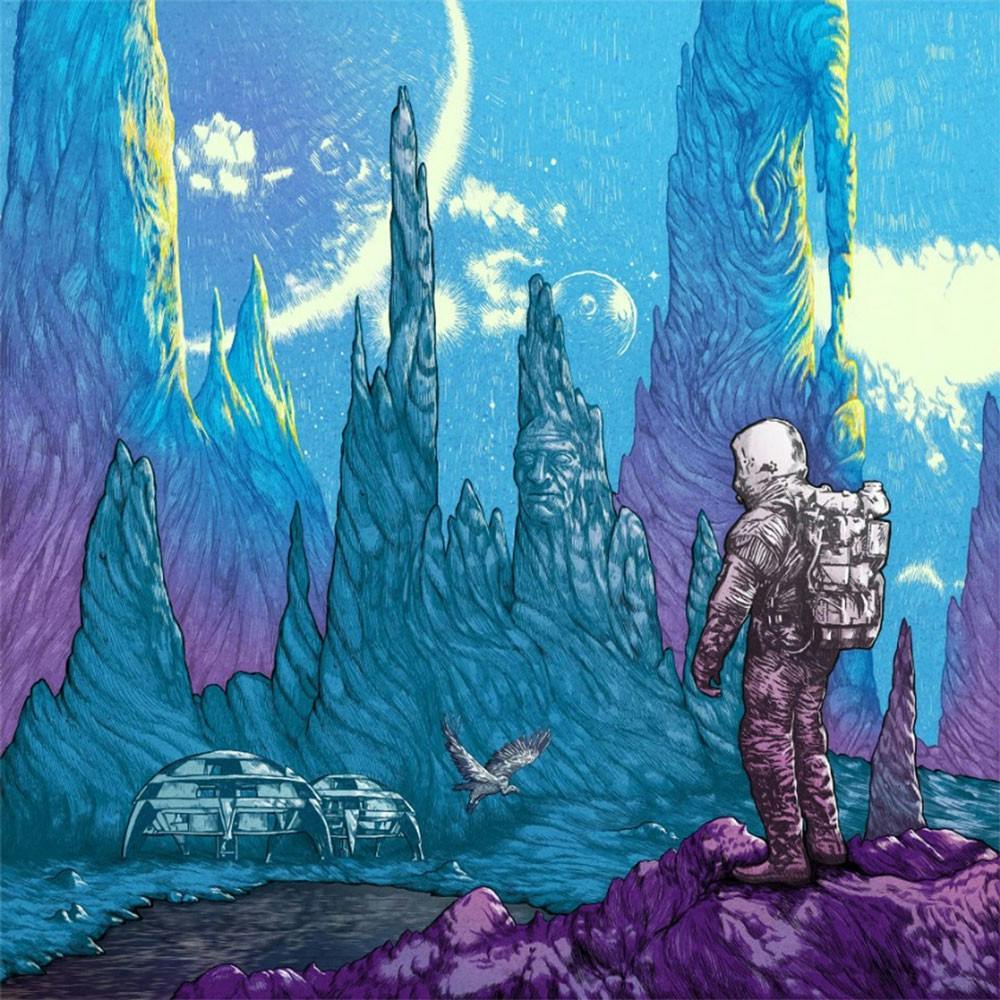Artist: Yuri Gagarin
Album: At the Center of All Infinity
Release Date: Dec. 2, 2015
Grade: B+
Naming your band after the first man in space sets the bar undeniably high.
On its second full-length album At The Center Of All Infinity, Swedish space rockers Yuri Gagarin leave no doubt that it lives up to its namesake. Coming on the heels of the excellent self-titled debut and 2015 single Sea of Dust, the band’s most recent effort is already taking off in the psychedelic rock scene.
A heavy slab of instrumental space rock, Yuri Gagarin’s newest release achieves tremendous atmosphere and melodic sophistication on every track.
When space music relies too heavily on textures and slowly undulating soundscapes to create a sense of ambience, listeners are forced to meander through compositions that feel expansive but get lost in the maze of their own sound.
Yuri Gagarin avoids this pitfall common to its genre by putting emphasis on fiercely melodic instrumental displays that cut clear over epic atmospherics.
The album’s headspace is alien and icy cold, riffs and lead parts played with crystalline precision and carrying over a base of fuzz and distortion.
The background noise of howling winds becomes a motif throughout the album, reminding the listener of the vastness of space and the mystery of man’s place in the grand scheme of the cosmos. At the Center of All Infinity has more than a touch of the mystical, instrumental dives into celestial metaphysics readily making up for what is lacked in lyrics.
The overall mood of the album is dark as night. Guitar effects become analogs for forces of nature, evoking visions of desolate extraterrestrial landscapes, solar storms and vast tracts of freezing space.
The first track “The New Order” brings together psychedelic Eastern melodies with blistering guitar solos to make a spectacular opener. The second track “Cluster of Minds,” starts off with all the fury of a solar storm, punishing riffs pay tribute to the band’s home city of Gothenburg, the capital of Sweden’s metal scene.
The album’s existential bent is best realized in “I See No God Up Here,” a bleak ambient soundscape that drones and creaks like the bones of a dying planet. The shortest track on the album, it segues perfectly into the epic title track in an effective play on dynamics.
The inspiring keyboard work on the outro of “Oblivion” is arguably the high point of the experience.
If any criticism is reserved for At the Center of All Infinity, it’s that the songs tend to blend together during initial listening. All tracks draw inspiration from the same cosmic subject matter and have similar production, guitar and synth tone, rhythms and emotions. Major differences between songs only begin to reveal themselves after several attentive listens.
This complaint is minor, however.
If the release suffers from uniformity, it must also be said that it is executed in uniform quality with top-line musicianship and production.
Insofar as it departs from the Djent-oriented style dominating the progressive instrumental scene, At the Center of All Infinity marks itself as separate from the highly technical, mechanistic excesses that render the subgenre stale in its less inspired forms.
Inhabiting a similar niche to virtuoso metal fusion projects like Sithu Aye and Chimp Spanner, Yuri Gagarin’s latest release is a worthy and distinct offering into the expanding world of heavy space music.
Luke Heuskin is an arts staff writer. Arts desk can be reached at arts@ubspectrum.com.





